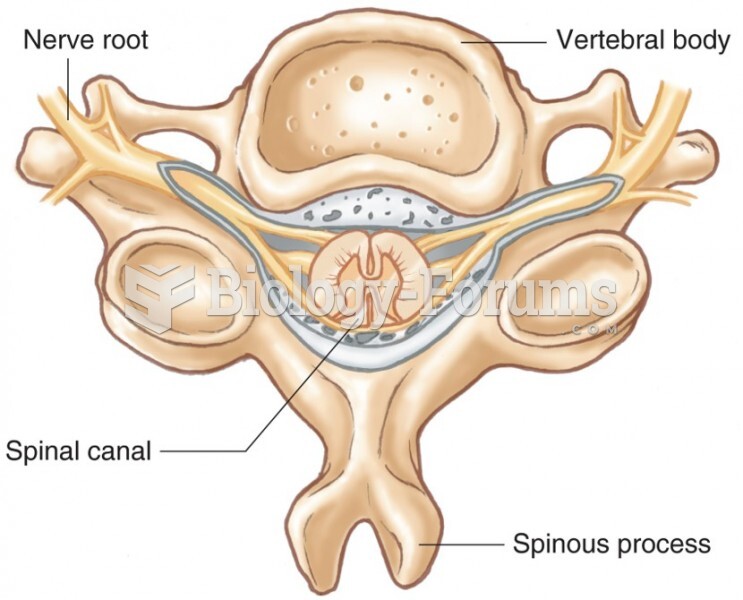|
|
|
Signs of depression include feeling sad most of the time for 2 weeks or longer; loss of interest in things normally enjoyed; lack of energy; sleep and appetite disturbances; weight changes; feelings of hopelessness, helplessness, or worthlessness; an inability to make decisions; and thoughts of death and suicide.
Asthma is the most common chronic childhood disease in the world. Most children who develop asthma have symptoms before they are 5 years old.
For pediatric patients, intravenous fluids are the most commonly cited products involved in medication errors that are reported to the USP.
The familiar sounds of your heart are made by the heart's valves as they open and close.
Excessive alcohol use costs the country approximately $235 billion every year.







